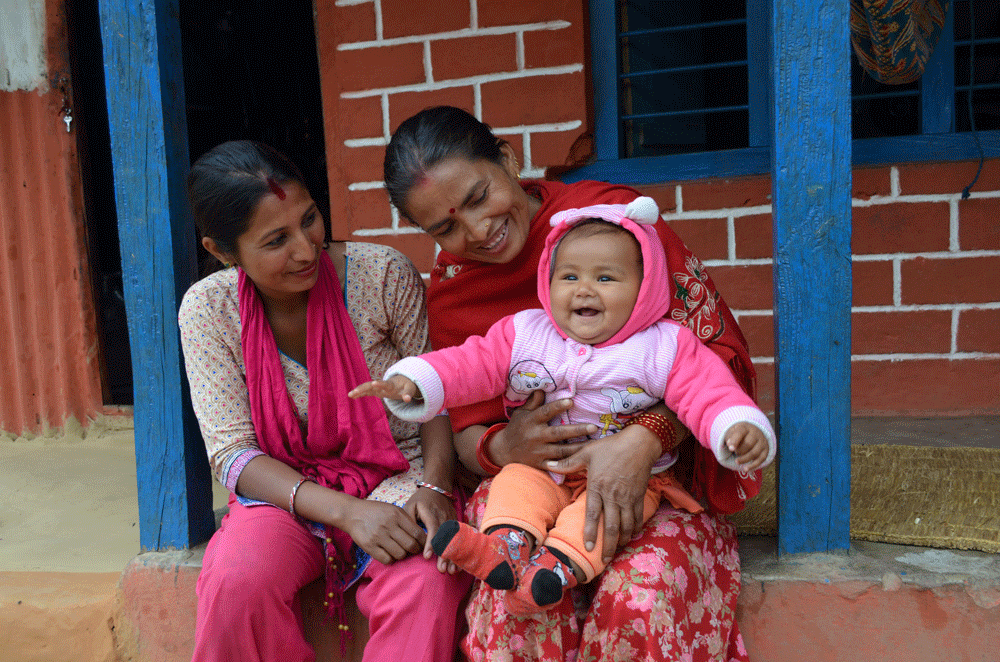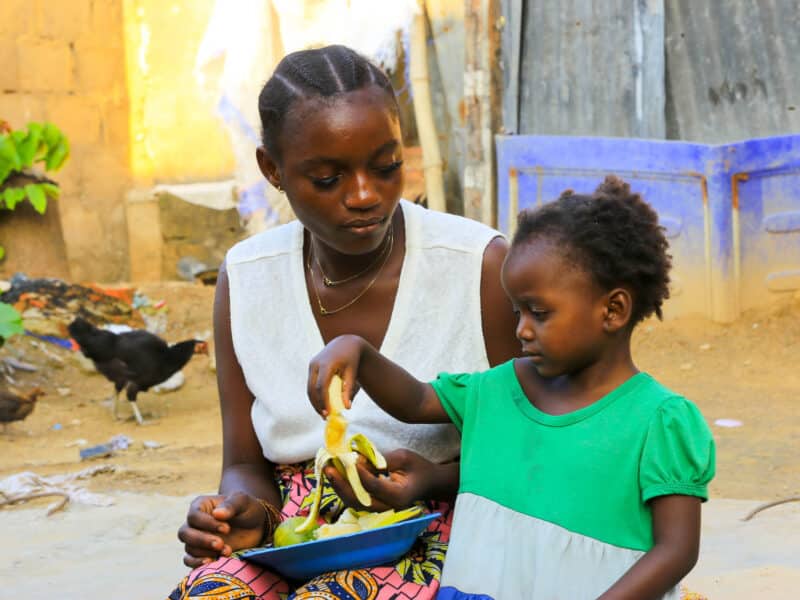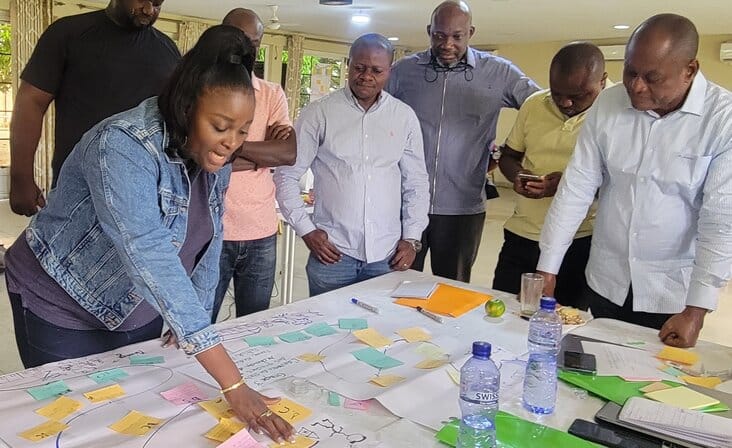When it comes to nutrition in Nepal, the recently ended Suaahara project shows the power and impact that a campaign modeling a supportive mother-in-law can have on nutrition and health.
Suaahara is a five-year USAID-funded project aimed at improving the nutrition of women and children in 41 districts of Nepal. As a partner to Save the Children, CCP led the social and behavior change communication (SBCC) elements of the project, providing technical direction and support to the development and implementation of the multi-platform Bhanchhin Aama (Mother Knows Best) campaign.
Bhanchhin Aama was centered around the character of an Aama, a ‘normal’ Nepali mother-in-law. The Aama appeared as a character in a serial radio drama and as the host of a live recorded call-in show. She was also featured in project videos, printed materials, billboards and other campaign media. The character became a popular and trusted figure across Nepal, providing a role model for target audiences, as well as delivering nutritional information in a credible, authentic and persuasive way. Social mobilization activities reinforced the campaign’s key messages, as well as providing mothers and their families with a place to share experiences and discuss the campaign.
Research show the campaign’s success: The radio show was popular, with more than 200,000 calls to the Aama throughout the campaign and an average of 1,600 calls per episode. Exposure to one or more of the SBCC interventions meant that people were more likely to practice critical nutrition behaviors such as:
- exclusively breastfeeding their children,
- feeding leafy greens to their children, and
- receiving family support.
They were also more likely to know that they should give more food or breast milk to a child when they are sick, wash their hands before feeding children and that eggs and meat were acceptable foods to give children over six months of age.
Two documents illustrating the profound difference the Suaahara SBCC activities have made in the lives of mothers and families across Nepal:
To read more about SBCC in the Suaahara project, please visit The Health COMpass.





